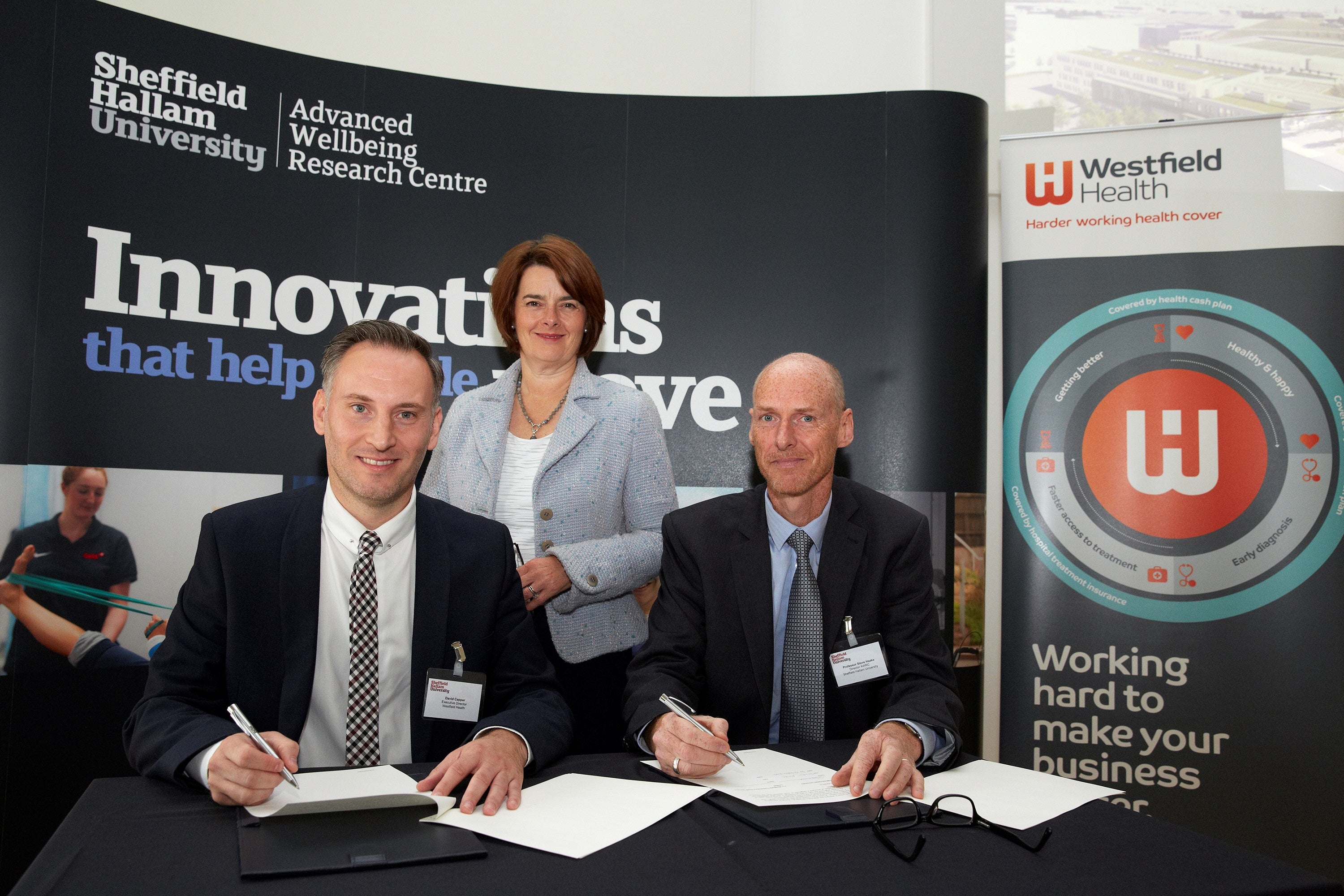The new centre that will nudge people into activity
With obesity levels rising, the new Advanced Wellbeing Research Centre proposes to tackle the issue with the help of technology and business

A recent report from the World Health Organisation (WHO) predicted that nearly three-quarters of men and two-thirds of women in the UK will be overweight by 2020.
Whilst it may be shocking that this troubling benchmark is less than five years away, the wider issue will come as no surprise to many. Stories about increasingly overweight children, rising levels of obesity and diabetes appear in the news almost every day.
Whilst obesity might be the symptom, a major contributing factor is the lack of physical activity across the population as a whole. Efforts to promote sport, swimming and walking from the Government, local authorities and agencies like Sport England have had mixed success and there are still around 30 per cent of the population that do less than 30 minutes of moderate physical activity during a whole week.
Sheffield Hallam University academic Professor Steve Haake is well aware of the problem. He explains, “We’ve spent the last few hundred years engineering physical activity out of our lives and then the last fifty years engineering highly calorific food into it. Sedentary behaviour and a stream of rich food is increasingly leading to chronic disease, which shortens lives but also places enormous pressure on an already overstretched NHS.”
With this in mind, Haake and his team of researchers and engineers at Sheffield Hallam have embarked on a new project that aims to take a different approach to tackling the issue. They have a vision to create the most advanced research and development centre for physical activity in the world.
The Advanced Wellbeing Research Centre, or AWRC, will develop “innovations that help people move.” The team will work with business on gadgets and technologies which aim to gently prod people towards including physical activity as part of their daily routine.
Haake notes, “The evidence shows that going from nothing to just 15 minutes of moderate exercise per day can reduce the risk of death by around 10 per cent. A little something is better than nothing, so we need to be innovative and nudge those who are doing nothing at all in that direction.
“The AWRC will act as a hothouse of innovation, bringing together people who make things like apps, activity loggers, sports equipment, orthotics, and even clinical devices. Anything that gets us moving just that little bit more. The potential benefits are huge.”
Clearly the idea has hit home in Whitehall. In the 2015 Budget the Government announced £14m for the project, helping Haake turn his vision into reality in the form of a state-of-the-art new indoor and outdoor research facility.
Significantly this will sit in the heart of an ‘Olympic Legacy Park’ development in Sheffield – an impressive joint venture between the public and private sectors including the University, the Council and the local NHS. As well as the AWRC, it will be home to a multi-purpose 3,000-seat indoor community sports and events arena, Sheffield’s second University Technical College and a new 1,200-place school.

Earlier this year global giant Toshiba signed up to become the first partner in a deal with £1.5m of investment. Just this week the Public Health Minister, Jane Ellison MP, was in Sheffield to confirm the AWRC's second partner - the not-for-profit health insurer, Westfield Health.
Haake predicts the partnership will expand over the coming months. “You will see us slowly grow the number of partners so that by the time we open our doors in late 2017, we will be able hit the ground running with projects, innovations and products that make a real difference to people’s lives,” he says.
“In 10 years' time people will look back and see how our project has not only helped people become healthier, but has also helped save the NHS money whilst creating new high value jobs and investment in the process.”
Join our commenting forum
Join thought-provoking conversations, follow other Independent readers and see their replies
Comments
Bookmark popover
Removed from bookmarks